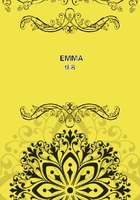
第53章
But you have not an idea of what is requisite in situations directly opposite to your own. Mr. Frank Churchill to be making such a speech as that to the uncle and aunt, who have brought him up, and are to provide for him!--Standing up in the middle of the room, I suppose, and speaking as loud as he could!--How can you imagine such conduct practicable?"
"Depend upon it, Emma, a sensible man would find no difficulty in it.
He would feel himself in the right; and the declaration--made, of course, as a man of sense would make it, in a proper manner--would do him more good, raise him higher, fix his interest stronger with the people he depended on, than all that a line of shifts and expedients can ever do. Respect would be added to affection.
They would feel that they could trust him; that the nephew who had done rightly by his father, would do rightly by them; for they know, as well as he does, as well as all the world must know, that he ought to pay this visit to his father; and while meanly exerting their power to delay it, are in their hearts not thinking the better of him for submitting to their whims. Respect for right conduct is felt by every body. If he would act in this sort of manner, on principle, consistently, regularly, their little minds would bend to his."
"I rather doubt that. You are very fond of bending little minds; but where little minds belong to rich people in authority, I think they have a knack of swelling out, till they are quite as unmanageable as great ones. I can imagine, that if you, as you are, Mr. Knightley, were to be transported and placed all at once in Mr. Frank Churchill's situation, you would be able to say and do just what you have been recommending for him; and it might have a very good effect. The Churchills might not have a word to say in return; but then, you would have no habits of early obedience and long observance to break through. To him who has, it might not be so easy to burst forth at once into perfect independence, and set all their claims on his gratitude and regard at nought.
He may have as strong a sense of what would be right, as you can have, without being so equal, under particular circumstances, to act up to it."
"Then it would not be so strong a sense. If it failed to produce equal exertion, it could not be an equal conviction."
"Oh, the difference of situation and habit! I wish you would try to understand what an amiable young man may be likely to feel in directly opposing those, whom as child and boy he has been looking up to all his life."
"Our amiable young man is a very weak young man, if this be the first occasion of his carrying through a resolution to do right against the will of others. It ought to have been a habit with him by this time, of following his duty, instead of consulting expediency.
I can allow for the fears of the child, but not of the man.
As he became rational, he ought to have roused himself and shaken off all that was unworthy in their authority. He ought to have opposed the first attempt on their side to make him slight his father.
Had he begun as he ought, there would have been no difficulty now."
"We shall never agree about him," cried Emma; "but that is nothing extraordinary. I have not the least idea of his being a weak young man: I feel sure that he is not. Mr. Weston would not be blind to folly, though in his own son; but he is very likely to have a more yielding, complying, mild disposition than would suit your notions of man's perfection. I dare say he has; and though it may cut him off from some advantages, it will secure him many others."